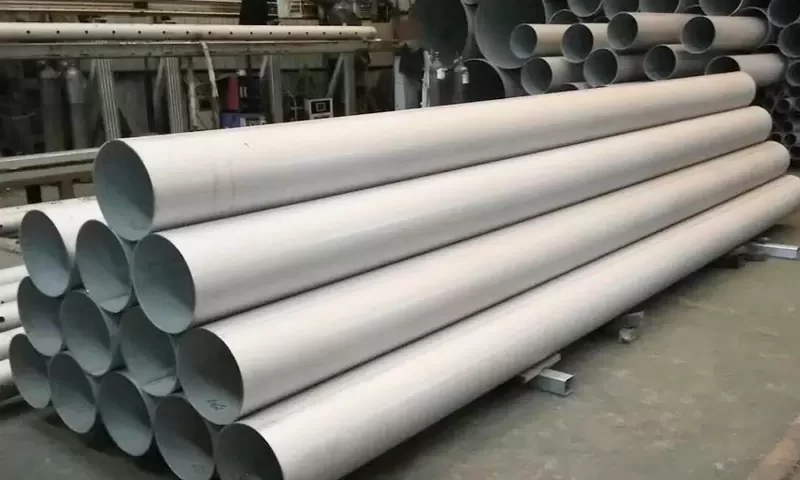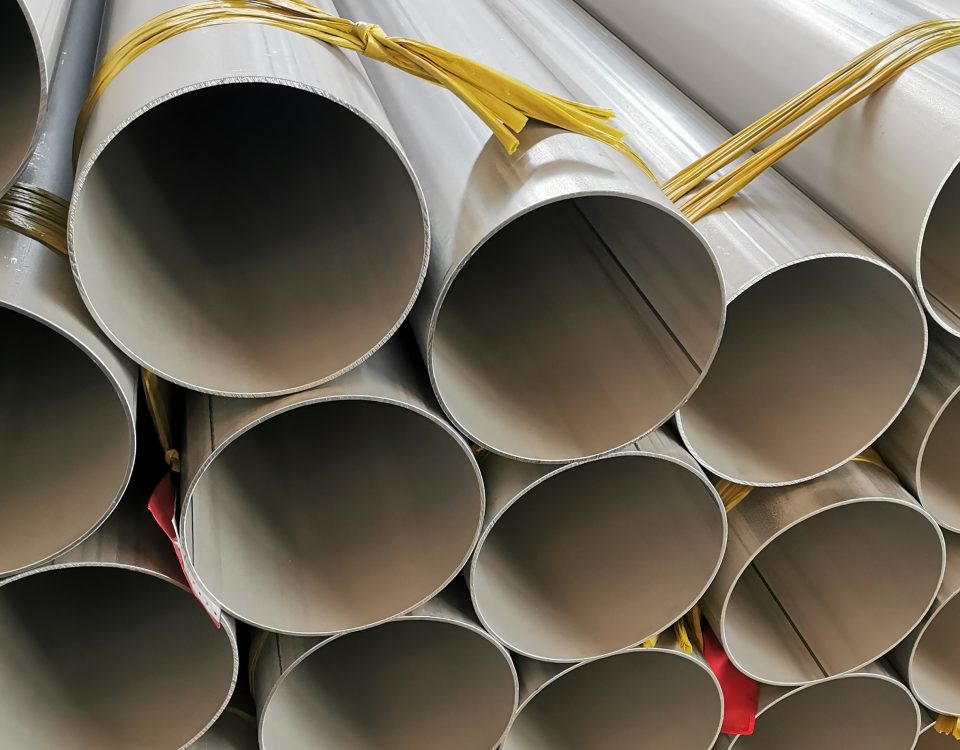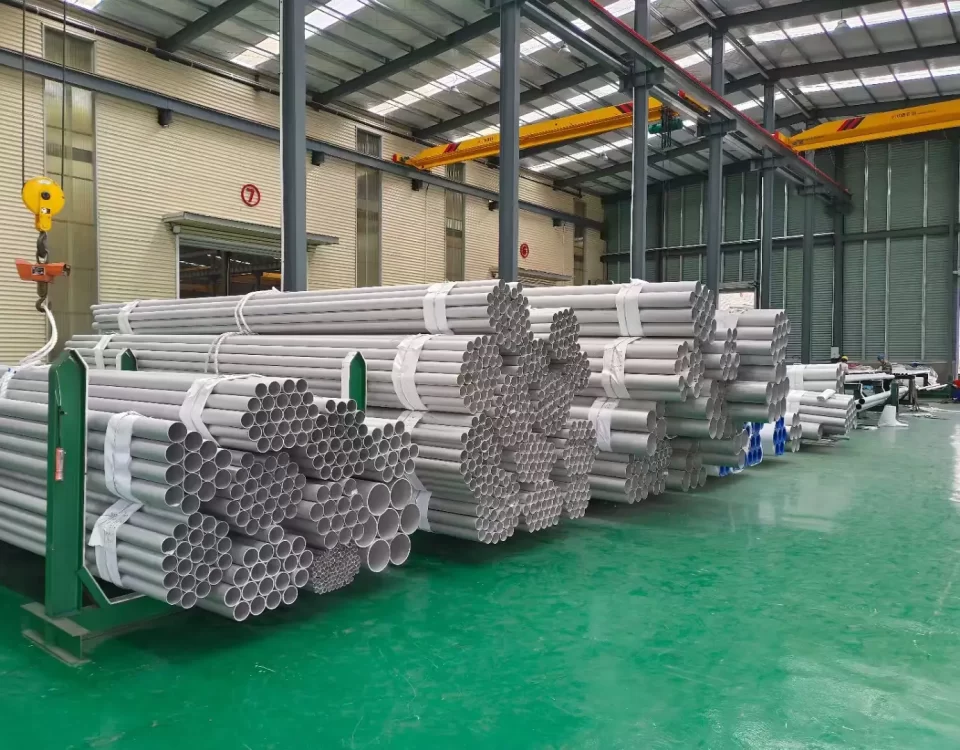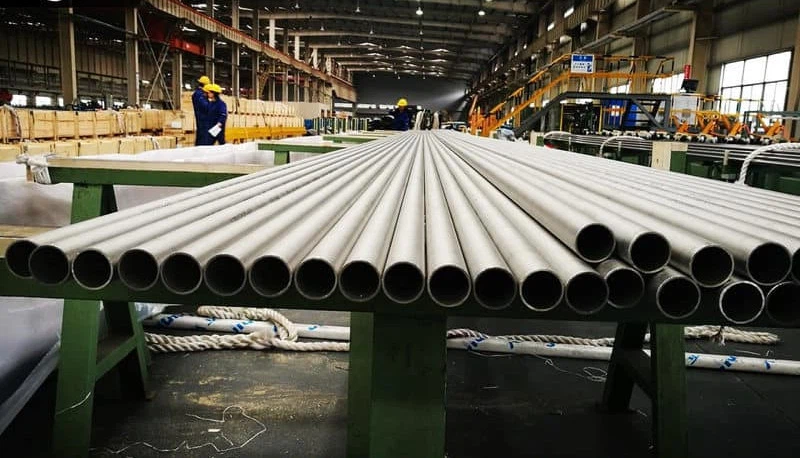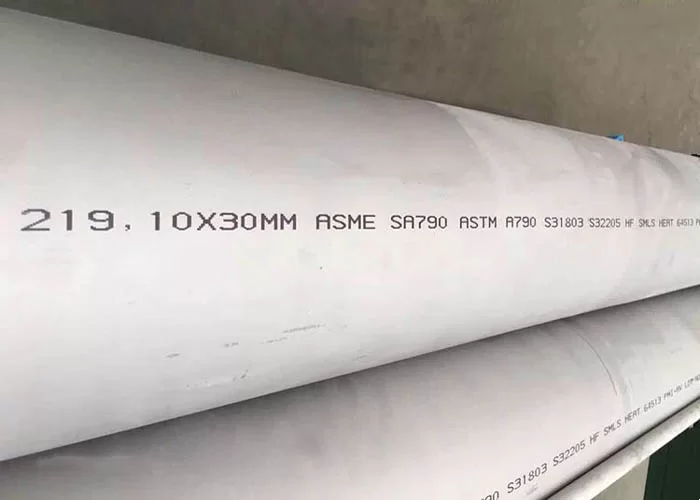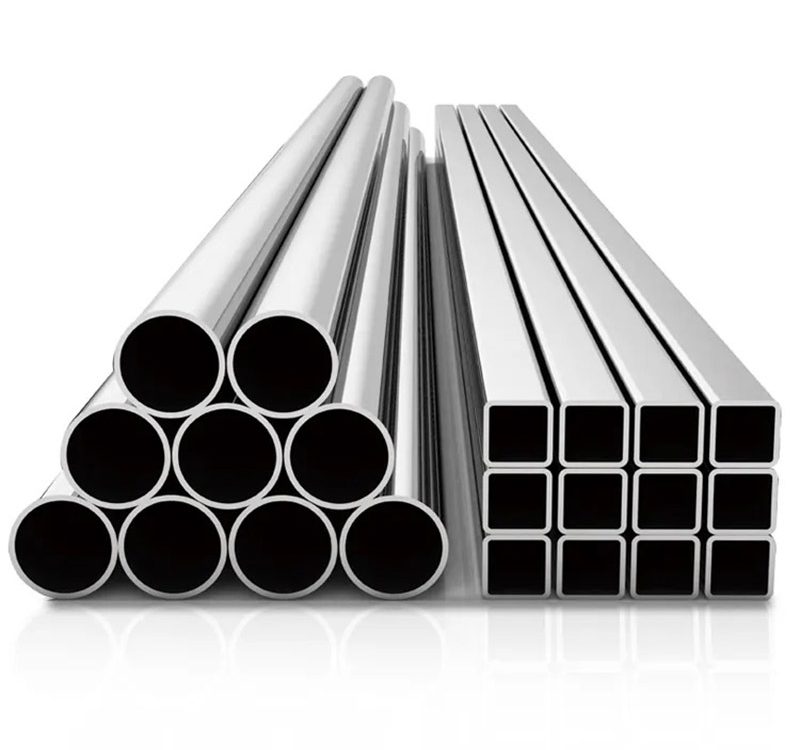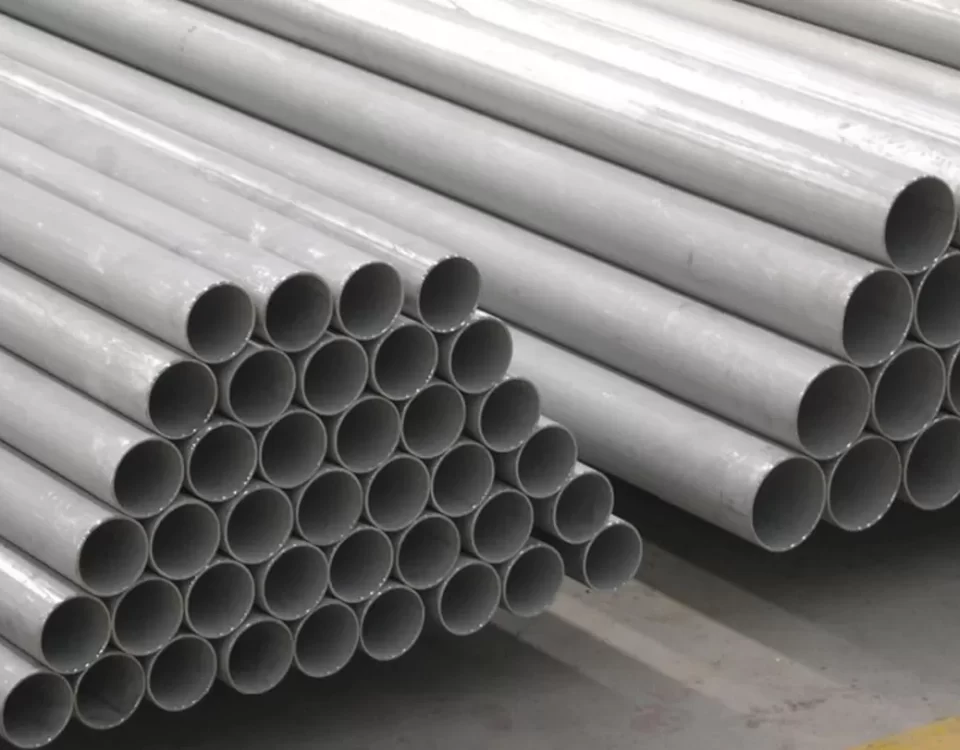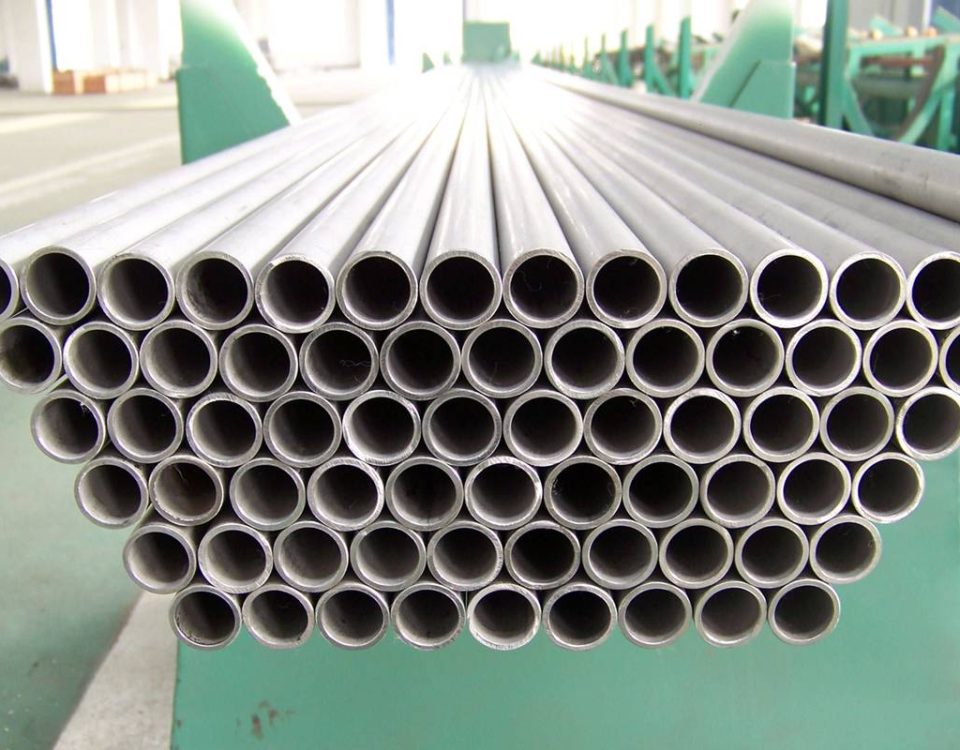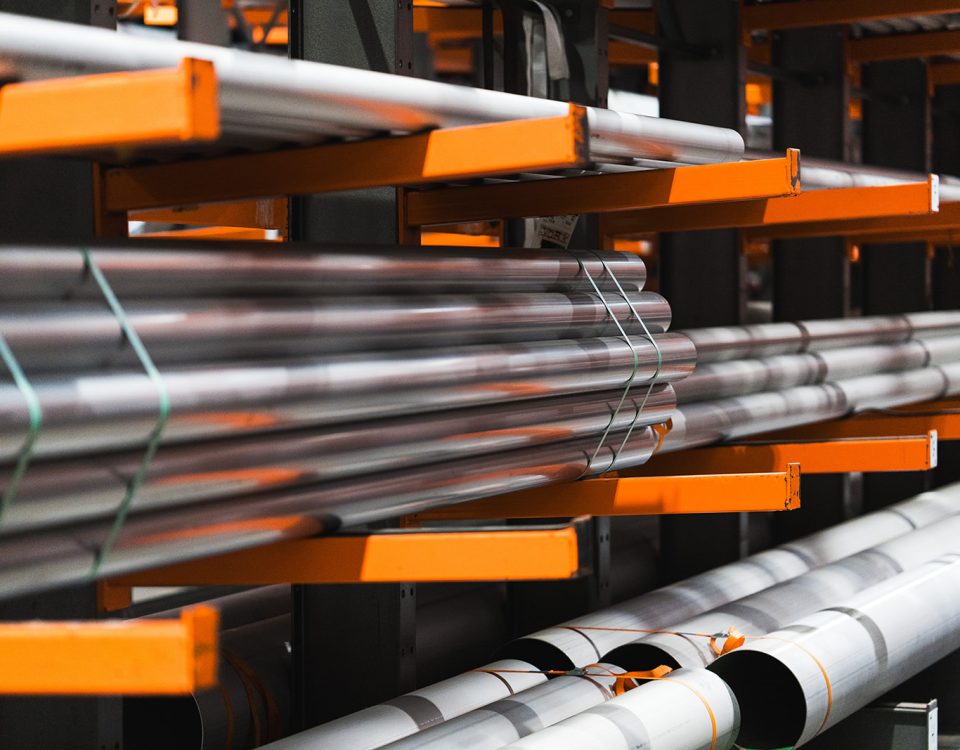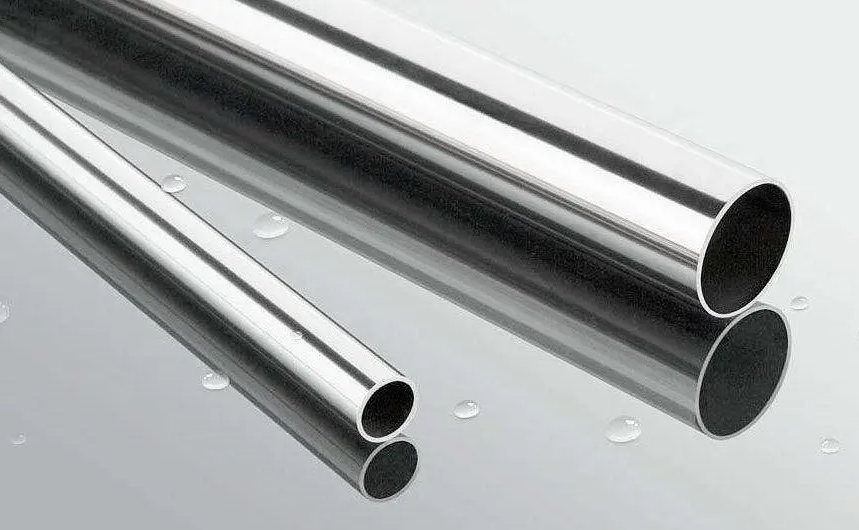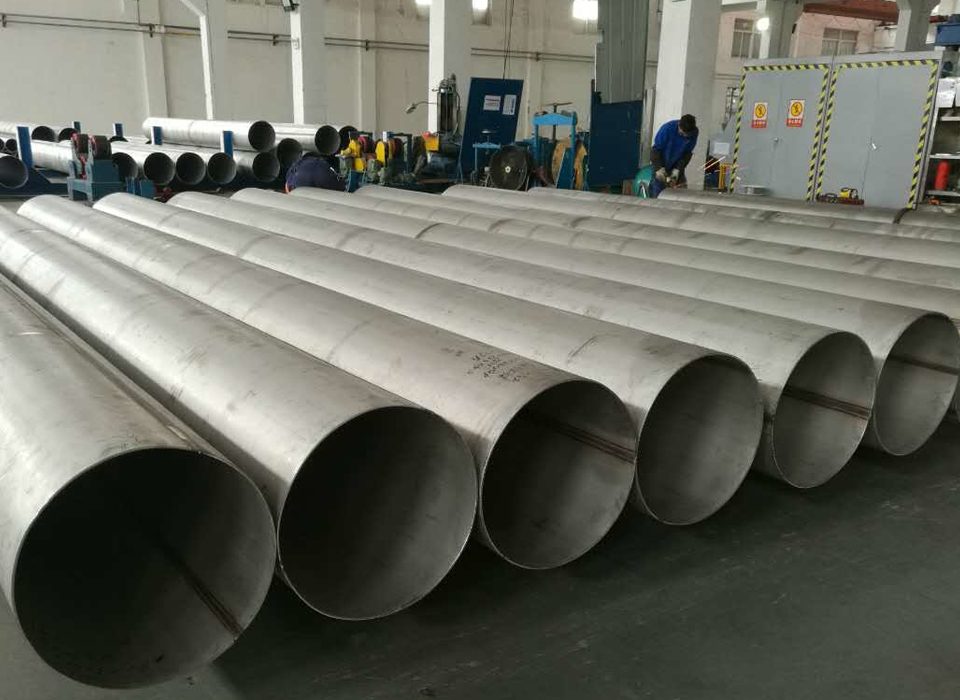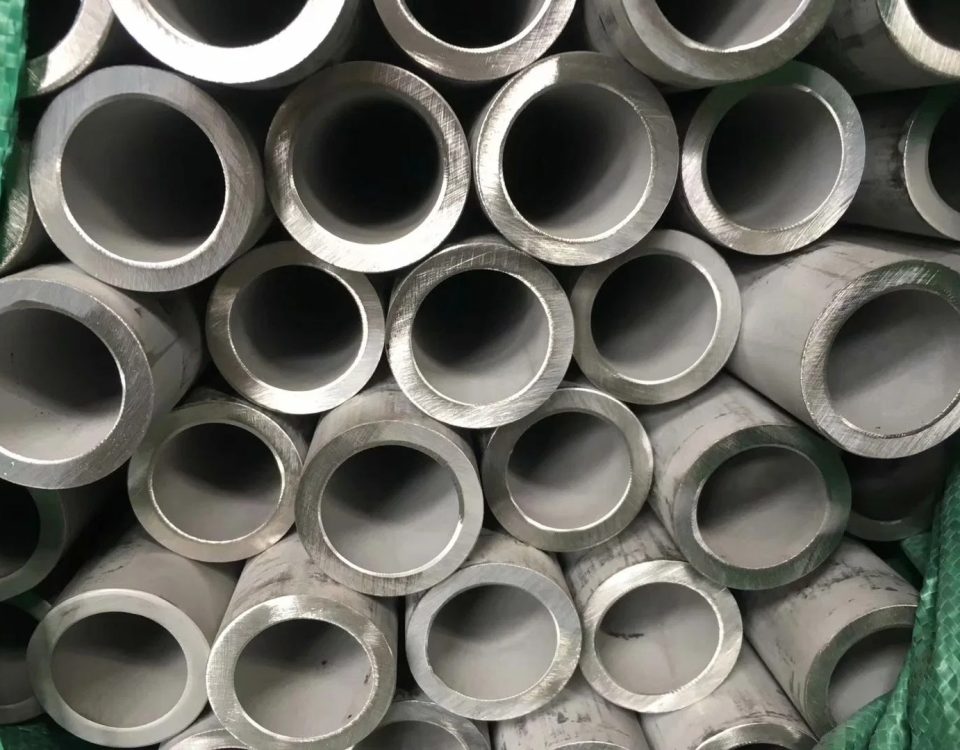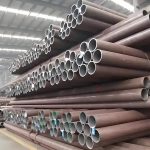
ASTM A847 Corten Steel Pipe | A847 Weathering Steel Pipe
May 20, 2025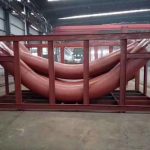
Induction Bending Pipe for Piping Systems
May 26, 202525Cr-20Ni High-Alloy Heat-Resistant Stainless Steel Pipe (310S)
Introduction to 25Cr-20Ni High-Alloy Heat-Resistant Stainless Steel Pipe
Abter Steel is a global leader in manufacturing and supplying 25Cr-20Ni high-alloy heat-resistant stainless steel pipes (i.e., 310S stainless steel pipes, UNS S31008), designed for high-temperature and corrosive environments. Compliant with ASTM A213, A312, and ASME SA213 standards, these pipes are renowned for their exceptional oxidation resistance, carburization resistance, and corrosion resistance, making them ideal for industrial furnace tubes, heat exchangers, petrochemical piping, incinerators, and high-temperature structural applications like space frame pipe trusses. The 25% chromium and 20% nickel content provides outstanding high-temperature strength, enabling reliable performance in oxidizing environments up to 1100°C.
310S stainless steel is an austenitic stainless steel with a high-alloy composition that ensures oxidation and corrosion resistance at elevated temperatures, perfect for industries such as petrochemical, power generation, metallurgy, and aerospace. Our 310S pipes are manufactured using seamless or welded processes, with sizes ranging from 1/8” to 24” OD, catering to applications from small heat exchangers to large industrial furnaces. Abter Steel serves global markets, including Mumbai, Dubai, Houston, and Shanghai, ensuring timely delivery and compliance with international standards.
Key features include:
- Superior High-Temperature Performance: Maintains strength and oxidation resistance at 1100°C.
- Carburization Resistance: Prevents material degradation in high-temperature carbon-rich environments.
- Corrosion Resistance: Resists acidic gases and salt spray corrosion.
- Structural Strength: Suitable for high-temperature trusses and piping systems.
- Aesthetic Appeal: Polished finish for decorative high-temperature applications.
Abter Steel is committed to delivering high-quality 310S heat-resistant stainless steel pipes for demanding industrial and structural applications.
Specifications of 310S (25Cr-20Ni) Stainless Steel Pipe
Our 310S stainless steel pipes comply with ASTM A213 (seamless boiler and heat exchanger tubes) and A312 (seamless and welded pipes), ensuring reliability in high-temperature applications. The following table outlines key specifications.
| Parameter | Details |
|---|---|
| Standard | ASTM A213, A312, ASME SA213, SA312 |
| Material Grade | 310S (UNS S31008, 25Cr-20Ni) |
| Size Range | 1/8”–24” OD (3.18–609.6 mm) |
| Wall Thickness | Sch 5S–Sch 160 (0.5–25.4 mm) |
| Pipe Type | Seamless, Welded (ERW, LSAW) |
| Length | Single Random, Double Random, Cut Length (6000–12000 mm) |
| Surface Finish | Pickled, Polished, Annealed |
| Testing | Hydrostatic, Ultrasonic, Tensile, Intergranular Corrosion, Hardness |
| Certifications | ISO 9001, EN 10204 3.1/3.2, Mill Test Certificate (MTC) |
Standards Explanation:
- ASTM A213: Suitable for seamless boiler, superheater, and heat exchanger tubes, emphasizing high-temperature performance.
- ASTM A312: Covers seamless and welded stainless steel pipes for high-temperature and corrosive environments.
- Annealing: Solution annealing at 1040–1150°C ensures intergranular corrosion resistance and high-temperature strength.
These specifications ensure 310S pipes are reliable for high-temperature structural applications like heat exchangers and furnace tubes.
Chemical Composition of 310S (25Cr-20Ni) Stainless Steel
The chemical composition of 310S stainless steel is optimized for high-temperature oxidation and corrosion resistance. The following table details the composition.
| Element | Composition (%) |
|---|---|
| Chromium (Cr) | 24.0–26.0 |
| Nickel (Ni) | 19.0–22.0 |
| Carbon (C) | 0.08 max |
| Manganese (Mn) | 2.00 max |
| Silicon (Si) | 1.50 max |
| Phosphorus (P) | 0.045 max |
| Sulfur (S) | 0.030 max |
| Iron (Fe) | Balance |
Role of Key Elements:
- Chromium (Cr): Provides high-temperature oxidation and corrosion resistance by forming a protective oxide film.
- Nickel (Ni): Enhances high-temperature strength and carburization resistance, stabilizing the austenitic structure.
- Low Carbon (C): Reduces the risk of intergranular corrosion, improving weldability.
This composition ensures 310S pipes excel in high-temperature acidic gas and carburizing environments.
Mechanical Properties of 310S Stainless Steel
The mechanical properties of 310S support its reliability in high-temperature structural applications. Key properties include:
| Property | Value |
|---|---|
| Tensile Strength | 515 MPa min |
| Yield Strength | 205 MPa min |
| Elongation | 40% min (in 2”) |
| Hardness | 217 HB max |
At high temperatures (e.g., 800°C), 310S retains approximately 70% of its room-temperature strength, making it suitable for furnace tubes and heat exchangers.
Advantages of 310S Stainless Steel Pipe
310S (25Cr-20Ni) stainless steel pipes offer significant advantages in high-temperature applications:
- High-Temperature Oxidation Resistance: Forms a stable oxide film at 1100°C, extending service life.
- Carburization Resistance: Resists material degradation in high-temperature carbon-rich environments.
- Corrosion Resistance: Performs well in acidic gases and humid conditions.
- High Strength: Supports high-temperature structural applications like trusses and heat exchangers.
- Ease of Fabrication: Seamless and welded processes meet diverse manufacturing needs.
These advantages make 310S pipes a top choice for high-temperature industrial and structural applications.
Manufacturing Process
Our 310S stainless steel pipes are manufactured using seamless or welded processes, with the following steps:
- Raw Material Selection: High-purity 25Cr-20Ni stainless steel billets ensure consistent chemical composition.
- Seamless Manufacturing: Hot extrusion followed by cold drawing ensures smooth surfaces and precise dimensions.
- Welded Manufacturing: ERW or LSAW processes, with welds ultrasonically tested for quality.
- Heat Treatment: Solution annealing at 1040–1150°C eliminates internal stresses and enhances corrosion resistance.
- Testing: Hydrostatic, ultrasonic, tensile, intergranular corrosion, and hardness tests ensure compliance with ASTM standards.
Seamless pipes are ideal for high-pressure, high-temperature applications, while welded pipes offer cost-effectiveness for large structural projects.
High-Temperature Performance Analysis
The high-temperature performance of 310S stainless steel pipes is their core strength, particularly for industrial furnaces and heat exchangers:
- Oxidation Resistance: At 1100°C in oxidizing atmospheres, 310S forms a stable Cr₂O₃ film, with an oxidation resistance lifespan exceeding 10,000 hours, outperforming 304 stainless steel (limited to 800°C).
- High-Temperature Strength: At 1000°C, tensile strength is approximately 200 MPa, ensuring structural stability.
- Thermal Fatigue Resistance: High nickel content reduces crack formation during thermal cycling, ideal for incinerators and heat treatment equipment.
- Corrosion Resistance: In sulfur-containing gases (e.g., petrochemical exhausts), 310S resists sulfidation corrosion, surpassing low-alloy steels.
For instance, in a 1000°C petrochemical cracking furnace, 310S pipes extended service life by 30% compared to 316L, reducing downtime and maintenance costs. Yuhong provides high-temperature performance test reports to ensure pipes meet project requirements.
Carburization Resistance
The carburization resistance of 310S stainless steel pipes makes them excel in high-temperature carbon-rich environments, such as petrochemical cracking furnaces and metallurgical heat treatment furnaces:
- High Chromium and Nickel Content: 25% chromium and 20% nickel form a dense oxide layer, preventing carbon diffusion into the base metal.
- Low Carbon Design: 0.08% maximum carbon content reduces chromium carbide precipitation, preventing intergranular corrosion.
- Stability: In 800–1000°C carburizing environments, 310S’s carburization rate is 50% lower than 304, extending service life.
In carburizing atmosphere tests at 900°C for 5000 hours, 310S pipes showed a carburization depth of only 0.1 mm, outperforming low-nickel alloys. Yuhong provides carburization resistance analysis to ensure reliable performance in demanding conditions.
Manufacturing and Welding Guidelines
The manufacturing and welding of 310S stainless steel pipes require specific techniques to maintain high-temperature performance and corrosion resistance:
- Manufacturing: Seamless pipes are formed via hot extrusion and cold drawing; welded pipes use TIG or MIG processes, with welds annealed to eliminate stresses.
- Welding Methods: Recommended methods include Gas Tungsten Arc Welding (GTAW/TIG) or Pulsed Gas Metal Arc Welding (P-GMAW) to minimize heat input and intergranular corrosion risks.
- Filler Material: Use AWS E310-16 or ER310 electrodes to match the 25Cr-20Ni composition of the base metal.
- Preheating and Post-Weld Treatment: Preheating is typically unnecessary, but thick-walled pipes (>10 mm) may be preheated to 150°C. Post-weld solution annealing (1040–1150°C) restores corrosion resistance.
- Safety Measures: Weld in well-ventilated areas with protective gear to avoid inhaling chromium and nickel fumes, per OSHA standards.</ suscept>
Yuhong provides welding procedure specifications (WPS) compliant with ASME Section IX, ensuring welds remain reliable in high-temperature and corrosive environments, suitable for trusses and heat exchangers.
Comparison with Corten Steel
Given your prior queries on Corten steel (e.g., ASTM A423 GR 1 and A847), the following compares 310S stainless steel pipes with Corten steel in structural applications, particularly space frame pipe trusses:
| Aspect | 310S Stainless Steel (25Cr-20Ni) | Corten Steel (A847) |
|---|---|---|
| Corrosion Resistance | Excellent resistance to oxidation and acidic gases, ideal for high-temperature environments. | Forms a protective rust patina, suitable for atmospheric corrosion but not high-temperature acidic gases. |
| High-Temperature Performance | Maintains strength at 1100°C, perfect for furnace tubes and heat exchangers. | Limited to 400°C, suited for outdoor structures. |
| Strength | 515 MPa tensile strength, ideal for high-temperature structures. | 483 MPa tensile strength, suited for ambient heavy-duty structures. |
| Cost | $3000–$6000/ton, higher than Corten steel. | $900–$1700/ton, more cost-effective. |
| Applications | Industrial furnaces, heat exchangers, pipe trusses. | Space frame trusses, bridges, sculptures. |
When to Choose 310S: Opt for high-temperature environments like petrochemical furnace tubes or heat treatment equipment. When to Choose Corten Steel: Select for ambient atmospheric exposure in structures like bridges or trusses. Yuhong offers both materials, tailoring solutions to project needs.
Applications of 310S Stainless Steel Pipe
310S stainless steel pipes are widely used in high-temperature and corrosive environments, as shown below:
| Industry | Applications |
|---|---|
| Petrochemical | Cracking furnace tubes, heat exchangers, catalyst tubes |
| Power Generation | Boiler tubes, superheaters, incinerator tubes |
| Metallurgy | Heat treatment furnace tubes, annealing furnace frameworks |
| Aerospace | High-temperature exhaust pipes, combustion chamber components |
| Construction | High-temperature structural pipe trusses, decorative high-temperature piping |
Detailed Applications:
- Petrochemical: Cracking furnace tubes operating at 1000°C, resisting carburization and sulfidation corrosion.
- Power Generation: Incinerator tubes handling high-temperature exhaust gases, ensuring long-term stability.
- Metallurgy: Heat treatment furnace pipe trusses supporting high-temperature annealing, combining strength and corrosion resistance.
- Aerospace: High-temperature exhaust pipes maintaining structural integrity at 800°C.
- Construction: High-temperature pipe trusses in industrial ventilation systems.
These applications demonstrate the versatility of 310S pipes in high-temperature structural and industrial systems.
Global Case Studies
Our 310S stainless steel pipes have been successfully deployed in landmark projects worldwide:
- Petrochemical Cracking Furnace in Dubai: Supplied 6” OD seamless 310S pipes for a 1000°C cracking furnace, operating for 5 years without significant carburization, extending equipment life by 25%.
- Heat Treatment Plant in Shanghai: Provided 12” OD welded pipes for annealing furnace pipe trusses, withstanding 900°C and thermal cycling, reducing maintenance costs by 15%.
- Incinerator in Houston: Delivered 4” OD pipes for high-temperature exhaust piping, resisting sulfidation corrosion and improving system efficiency by 10%.
- Aerospace Facility in Mumbai: Supplied 2” OD polished pipes for high-temperature exhaust systems, combining aesthetics and heat resistance.
These case studies highlight Yuhong’s expertise in delivering high-performance 310S solutions for high-temperature industrial and structural applications.
Why Choose Abter Steel?
Abter Steel is the preferred supplier for 310S heat-resistant stainless steel pipes, offering:
- Advanced Manufacturing: Seamless and welded processes for large-diameter pipes.
- Material Expertise: Optimized 25Cr-20Ni composition for high-temperature performance.
- Engineering Support: ASME and ANSYS-based design verification for high-temperature structures.
- Quality Assurance: ISO 9001, ASTM compliance, rigorous testing, and MTC.
- Global Supply: Efficient delivery to industrial hubs like Mumbai, Dubai, and Houston.
Our commitment to quality and customization ensures 310S pipes excel in high-temperature and corrosive environments.
FAQs on 310S Heat-Resistant Stainless Steel Pipe
1. How do 310S pipes perform at high temperatures?
They maintain strength and oxidation resistance at 1100°C, ideal for furnaces and heat exchangers.
2. How are 310S pipes welded?
Use TIG or P-GMAW with E310-16 electrodes, followed by annealing to restore corrosion resistance.
3. How does 310S compare to Corten steel?
310S is suited for high-temperature corrosion; Corten steel is for ambient atmospheric corrosion.
4. What is the price of 310S pipes?
Approximately $3000–$6000/ton, depending on size and customization.

